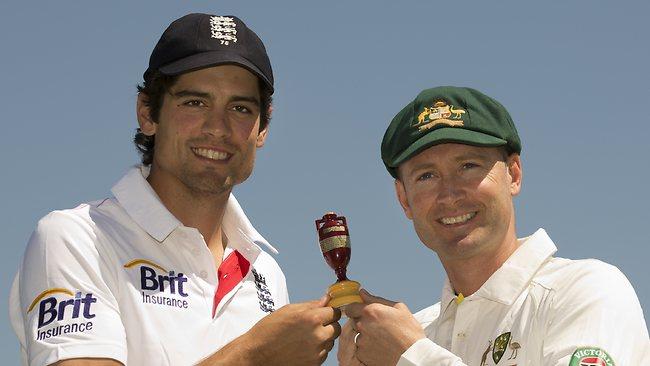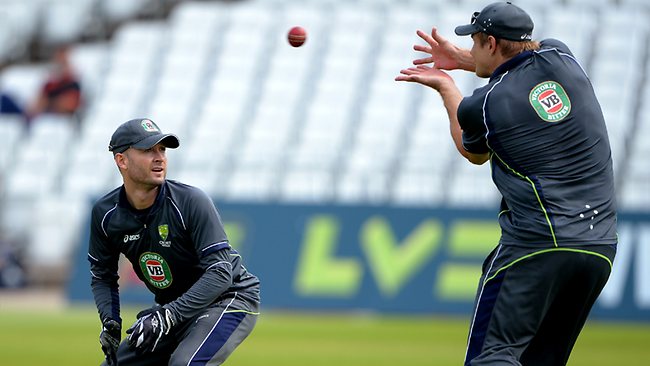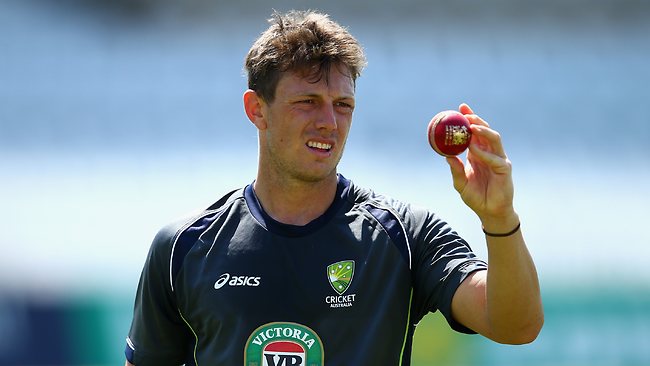Ashes rivals face a challenge to maintain the rage
THERE'S a danger that the kind of intense competition that has characterised the best of the Ashes will be hard to sustain over 10 Tests in just six months.

WERE he writing today, David Stove, the Australian philosopher, might have occasion to rethink his oft-quoted explanation of why Australia's margin of superiority in Ashes contests at the time of his writing was slight but consistent. After all, we are in a rare moment in time that cricket historians will look back on and recognise as a period of English cricketing dominance.
After 2005, when Michael Vaughan's team turned back the tide of Australian mastery, there was a brief reminder of the old mongrel, as Ricky Ponting led his team to a green-and-gold wash in the next series, but since then, in 2009 and 2010-11, England have not just regained and retained the Ashes, but looked superior in every way; in planning, in fitness, in batting, bowling and fielding - even, occasionally, in press conferences. The results have been no fluke.
If, as expected, Alastair Cook's team win the next two series, we would be looking at a period of sustained prepotency against Australia's first-choice team not enjoyed since World War II. England won three successive series in the 1950s, but if (and those of us conditioned to pain at the hands of Australia always emphasise the “if”) all goes according to plan, England will have been in the ascendency for almost a decade from 2005 to 2014, with just one reverse along the way.
Stove's explanation for periods of Australian ascendancy in times past centred on the observation that “whereas the Australians hate the Poms, the Poms only despise the Australians”.
It was a clever play on words, highlighting the antipathy often felt on both sides, but the scheduling over the next six months, when the sides face each other over ten Tests, is going to challenge that basic premise. Hate? Despise? The antagonists will see more of each other over the next six months than they will of their wives and families.
They are as likely to be best mates at the end of it all as much as bitter rivals. Of course, nobody quite knows how the next few months will pan out. Such an intense confrontation has scope for producing individual contests that could shape the lives and careers of those playing, for better and for worse.
When I faced Glenn McGrath for the first time, I was not to know I was about to hit my glass ceiling and meet the bowler who did more than anything to hasten me into a career in these pages. Even so, I usually had some breathing space between series in which to recuperate, which will not be afforded the protagonists this time. Mind you, would McGrath have readily bowled through ten consecutive Ashes Tests without injury?
Will such a career-defining confrontation take shape over the coming months? Will Mitchell Starc find a chink in Cook's armour that prevents the left-hander from travelling the path that must lead to a challenge to almost every batting record known to man?
Will Michael Clarke's porcelain back last the course? Will an enmity develop between, say, Joe Root and David Warner, begun after a few drinks in a Birmingham bar but continued thereafter, one that will shape the next generation of Ashes contests? There is a chance of that, I suppose. Close proximity can breed distaste of each other.
But there is also the danger that the kind of intense competition that has characterised the best of the Ashes will be hard to sustain over ten Tests in such a short period of time. Familiarity may breed not contempt, but resigned acceptance that this is just another series built into the never-ending treadmill that is international cricket. Let us hope not.
Were we crying out for more, for example, at the end of the 2005 series, the greatest Test series I have seen? I don't think so. To judge from the injuries and the way the England team's intensity dropped off quickly thereafter, they had given too much to be expected to give any more. They needed some time out. So did Australia: time to build the hunger for the retribution meted out on Australian soil a year later. The public needed some time, too: to reflect, to digest and to wallow in the glory (or the pain). Sporting crescendos don't just happen, they need a narrative to develop over time and the paying public need time to salivate and anticipate.
At the moment, interest is strong in both series. All five days at the Kia Oval, for example, were sold out in record time. Whether that wanes will depend very much on the state of affairs between the teams.
England cricket supporters have long had the stomach for enduring difficult times, but if the memory of Melbourne in 2010 is anything to go by, when an estimated 50,000 Australia supporters left well before the end of a first day that went badly for the home team, Australians may not have the same level of fortitude for a flogging.
So, with the teams at opposite ends of the sporting cycle, it is not perhaps the best time to be ramming too much Ashes cricket down our throats. England are on a high, playing with a swagger that befits a team who, in recent years, have won the World Twenty20, been finalists in the Champions Trophy and, for a short period of time, enjoyed being at the summit of the Test rankings.
Australia are at a low ebb. Gradually the great players have gone, two of the last, Ricky Ponting and Mike Hussey, too recently to have allowed for an orderly transference of power in the middle order, leaving Michael Clarke the last of the tribe.
There has been disharmony and disorder, too, at managerial level, culminating in the sacking of Mickey Arthur, which has left those at the top of Australian cricket red-faced and under pressure.
Stove's argument that Australia's ascendancy was caused by a greater degree of dislike was meant to be flippant, of course. In reality, Australia enjoyed the advantages offered by weather and a fiercely competitive domestic structure that gradually put English county cricket to shame.
But in the past decade, as English sport has recognised the need for investment to produce sporting returns, the second of those advantages has been whittled away. As state cricket has declined, so England cricket (as opposed to English cricket) has benefited from sustained investment, making the team the best resourced in the world game.
Briefly, during the last Australian summer, Clarke's team might have gone to the top of the Test rankings - had they won a match in Adelaide - but for final-day resistance from South Africa. The moment was illusory, though, and would have flattered them. More and more the analogy is not with the great Australia teams of the recent past, but with Allan Border's team of the mid-1980s, who needed time and a helping hand in the shape of Bobby Simpson to restore some basic values.
To that end, ten Ashes Tests in six months may have come a little too soon.
The Times





